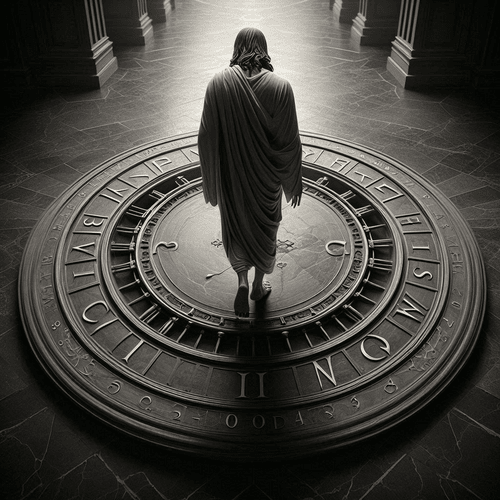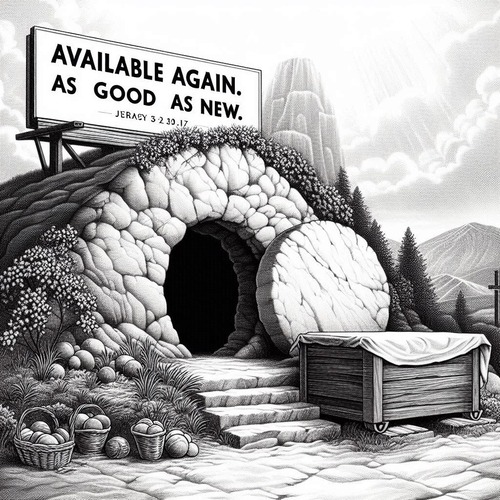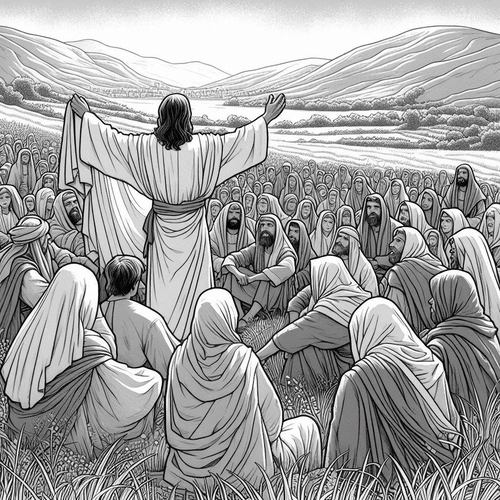Exploring the Historicity of Jesus: Facts and Evidence
Was He Just a Myth? Or Did He Really Walk the Earth?
Jesus of Nazareth. The name either ignites passionate debate or unwavering devotion. But did this enigmatic figure truly walk the earth, or is he a mere figment of faith? Historians and theologians have grappled with this question for centuries. Today, we shall delve into the compelling evidence for the historicity of Jesus.
While the spiritual significance of Jesus is a matter of personal belief, the historicity of Jesus is a topic that can be approached through the lens of historical evidence and testimony. Let’s explore the compelling attestations that affirm Jesus as a historical figure.
Early eyewitness accounts: Christian historians, including the gospel writers and Paul drawing on eyewitness testimonies and oral traditions, meticulously documented Jesus’ life and teachings. What’s more, these writers seem to affirm and attest each other’s writings. These writings not only paint a theological picture but also offer a historical perspective that strengthens the case for Jesus as a real person who left a lasting impact.
Witness from outside the faith—corroborating Bible accounts: The historicity of Jesus is supported by accounts from non-Christian historians of antiquity. Flavius Josephus, a Jewish historian, provides a detailed narrative of Jesus, referring to Him as a wise teacher and reporting on His crucifixion at the hands of Pontius Pilate. References in the Jewish texts, the Talmud and Mishnah, while not flattering, further attest to the existence of Jesus, indicating even those outside the Christian faith recognized His presence in history.
The early dates of New Testament writings: The New Testament documents were penned remarkably close to the events they describe, precluding the possibility of legend or exaggeration distorting the narrative. The Gospels and Acts were written between AD 40s–60s, with the Pauline Epistles following shortly after, between AD 48–61.This proximity in time to the life of Jesus means that many who had witnessed the events were still alive, providing a safeguard against inaccuracies and fabrications.
Moreover, the oral tradition about Jesus, which served as the foundation for these written accounts, was rooted in a culture that prized accurate memory and transmission of stories and teachings. In an oral society like first-century Palestine, the words and deeds of Jesus were committed to memory by His disciples and conveyed with precision from person to person. This period, therefore, serves as a testament to the reliability of the Gospel accounts, as it allowed for the immediate and faithful dissemination of Jesus’ life and teachings, well before any written records were established.
Eyewitnesses who were ready to die for what they proclaimed: The story of Jesus hinges on the powerful testimonies of those who claimed to have witnessed his life and resurrection firsthand. Many of these individuals faced persecution and even death rather than recant their beliefs. This unwavering conviction suggests a level of truthfulness that transcends mere hearsay. The willingness of these witnesses to face martyrdom for their beliefs speaks volumes about their trustworthiness and the impact of Jesus’ life and message.
Collectively, these four factors should suffice to help us decide what to make of the claims of the proponents of the “Jesus Myth”—a fringe minority that proposes Jesus’s story was entirely fabricated. However, the weight of historical evidence, both Christian and non-Christian, along with the strength of early traditions and eyewitness accounts, firmly place Jesus within the realm of historical figures.
Conclusion: A Man Who Shaped History: Jesus’ Enduring Legacy: Evidence for the historicity of Jesus, from both Christian and non-Christian sources, combined with powerful oral traditions and eyewitness testimonies, builds a compelling case for Jesus as a historical figure. Whether viewed as a spiritual leader, a revolutionary teacher, or a historical enigma, Jesus of Nazareth’s undeniable impact on the world stage continues to resonate today.
Related Reads:
Editor's Pick

No Decay, No Defeat: What It Means That Christ’s Body Saw No Corruption
On the Day of Pentecost, Peter stood before thousands and made a startling claim: David's body decayed in the tomb, [...]

GPS Without Eyes: How Ants Silently Shout Intelligent Design
Picture a leafcutter ant navigating the rainforest floor in pitch darkness, carrying a leaf fragment 50 times its body weight. [...]

Does God Truly Care About My Everyday Choices?
We believe God created the universe. We believe He orchestrated the exodus from Egypt and raised Jesus from the dead. [...]
SUPPORT US:
Feel the Holy Spirit's gentle nudge to partner with us?
Donate Online:
Account Name: TRUTHS TO DIE FOR FOUNDATION
Account Number: 10243565459
Bank IFSC: IDFB0043391
Bank Name: IDFC FIRST BANK






